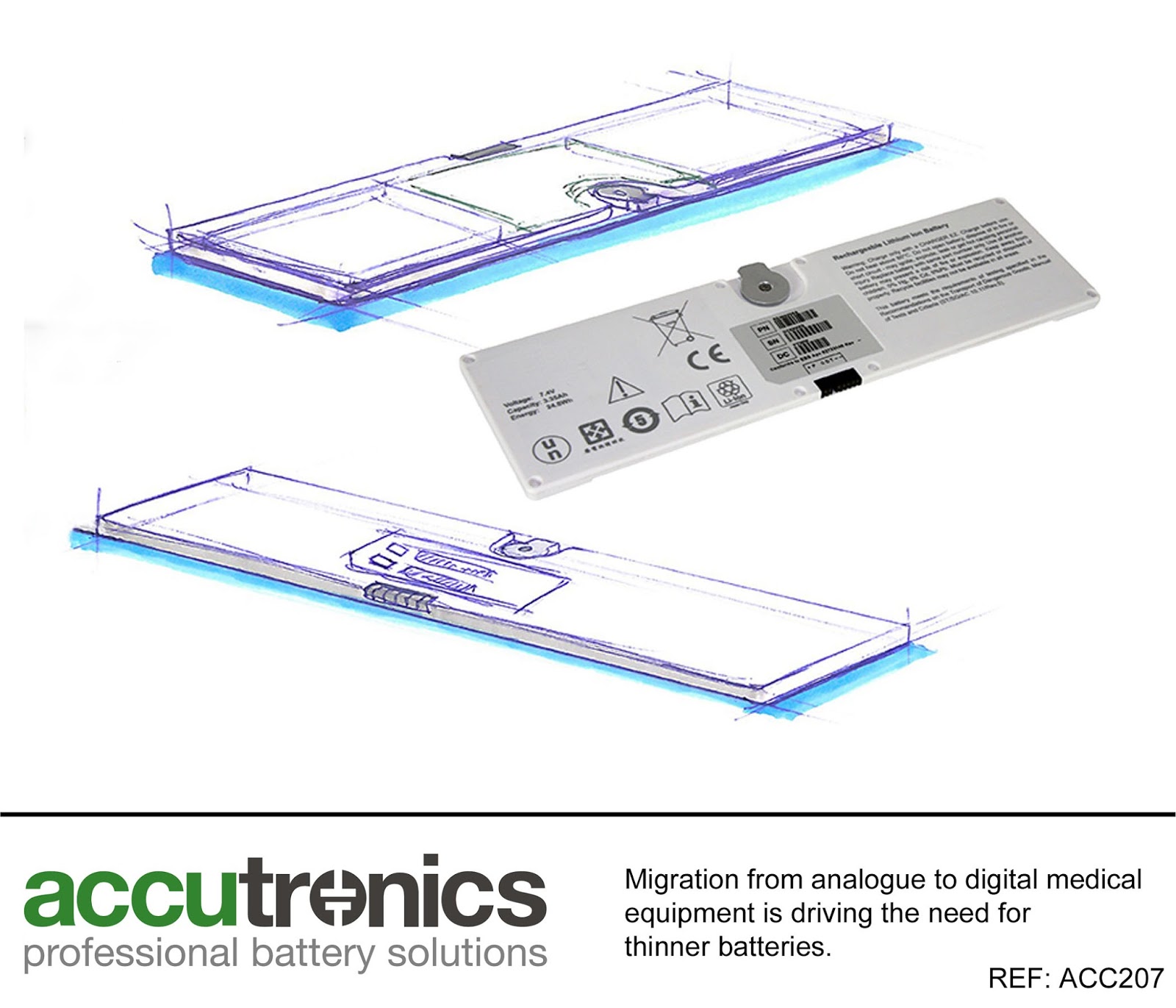Rob Phillips, Managing Director of Accutronics, a leading independent battery design company servicing the medical sector, provides a brief overview of standards and design issues relevant to designing in batteries (and associated battery chargers) for medical devices.
It’s usually impractical for companies other than the largest to employ dedicated battery specialists internally. For many businesses, major battery (and associated charger) designs occur only every several years. Yet battery and the associated charger technology is a complex field that requires investment in continual reskilling in technology, as well as an understanding of multiple standards and legislation. Keeping internal battery specialists on-hand is often uneconomical and also, while Medtech designers generally know medical device standards, in my experience they don’t have the same knowledge of battery or charger standards.
However, whether you engage with a third party battery and charger specialist or not, project managers responsible for specifying the batteries in a medical device (and being able to charge them) will benefit from understanding the basics of the standards involved, and what some of the more common (and expensive) design issues are, so they can be avoided.



